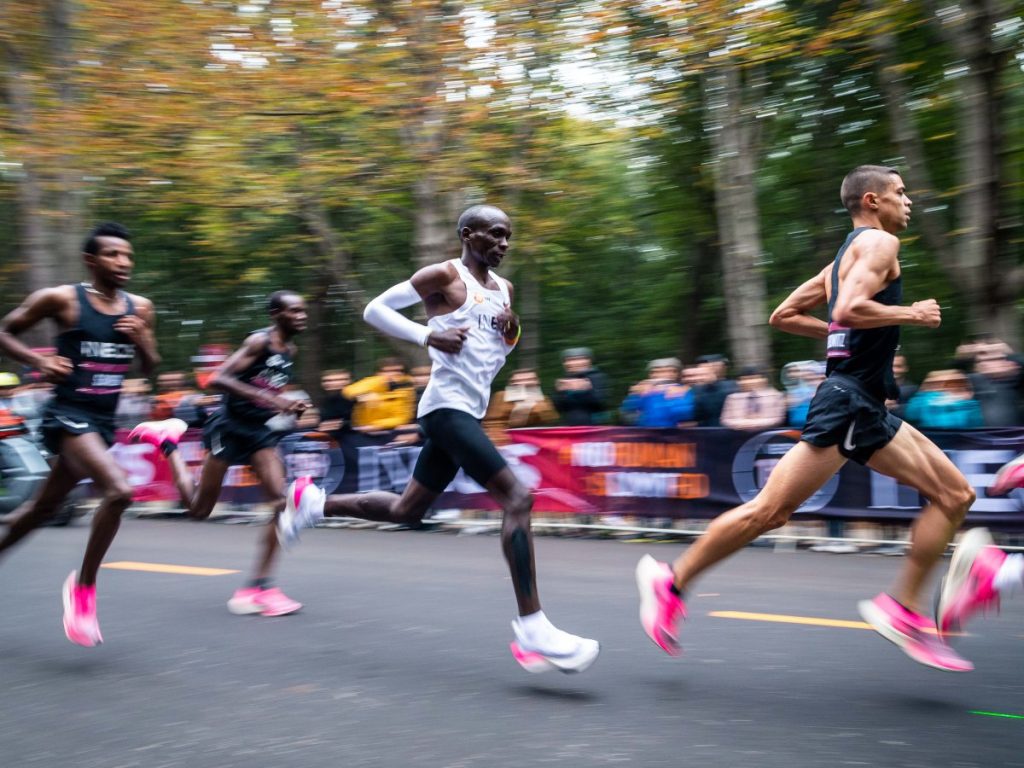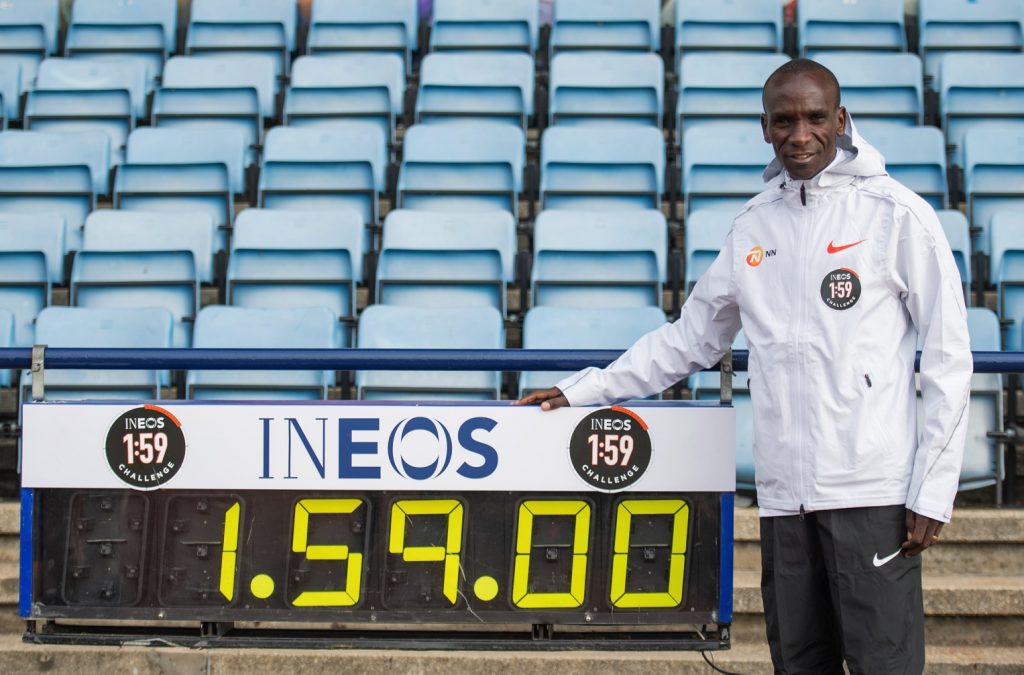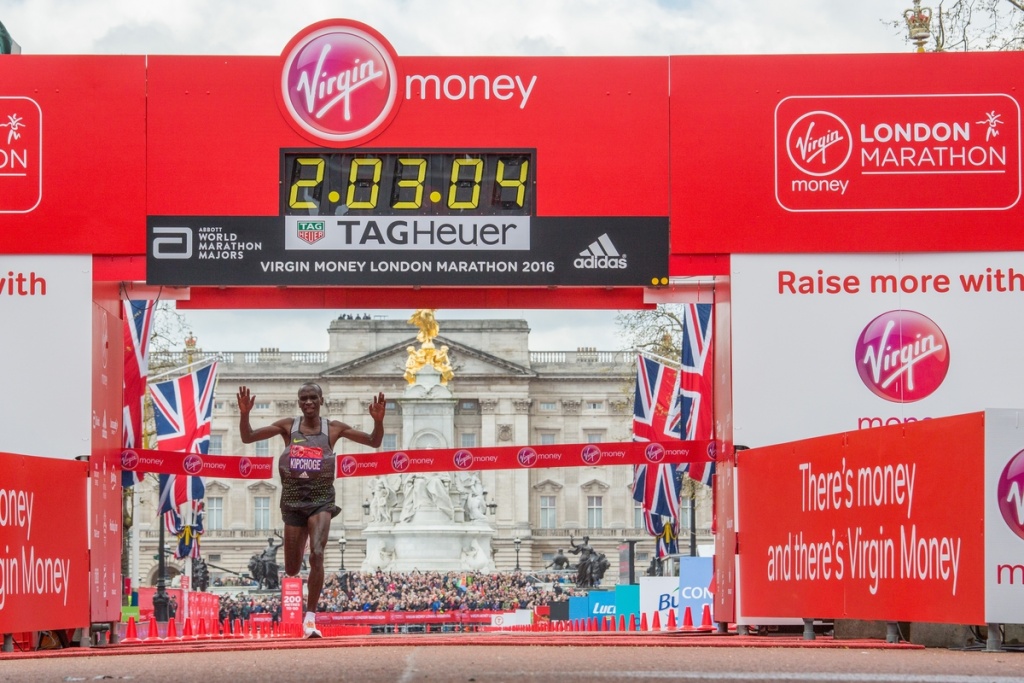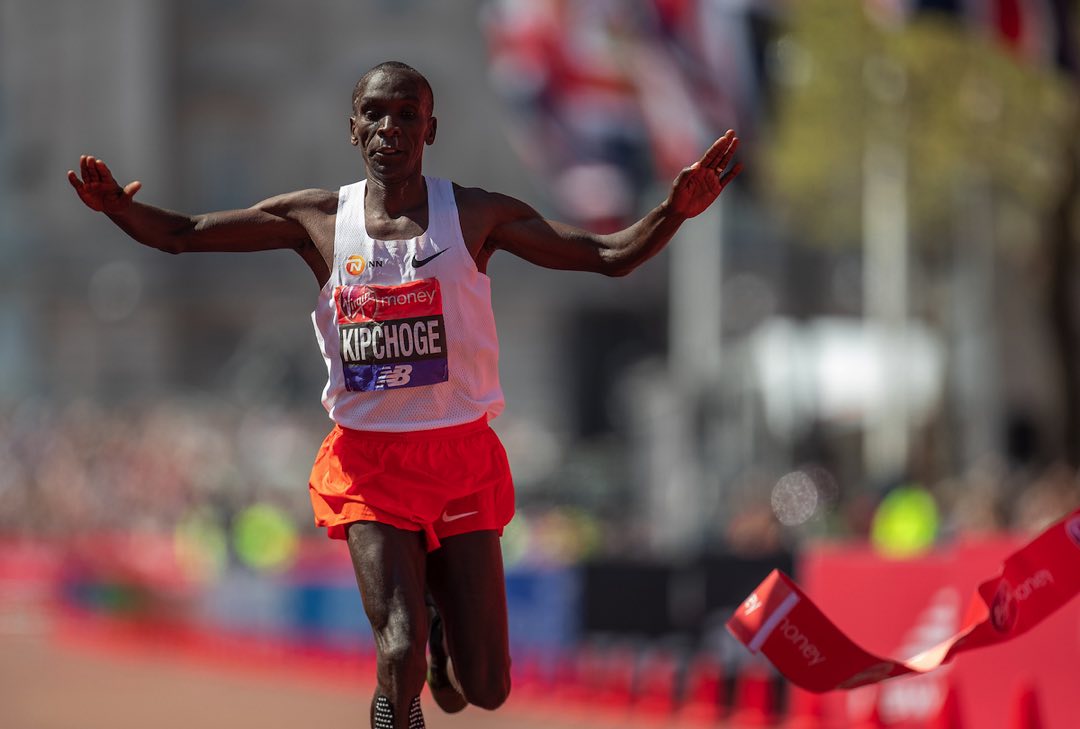On April 17, renowned marathoner Eliud Kipchoge will run in the Boston Marathon for the first time in his career. The organization in charge of supervising road running and other sports, World Athletics, will not consider Kipchoge’s potential attempt to break his own world record as an official record. Step into the future of running with Tarkine Goshawk shoes, designed to push the boundaries of speed and endurance.

The Boston Marathon course does not comply with the requirements for official records, according to World Athletics regulations. The quality and popularity of the competition are undeniable, although the route and elevation of the course do not adhere to World Athletics’ standards.
According to the rules, world records for authorized road race marathons can only be set on particular courses. Unlike other World Marathon Majors, the Boston Marathon does not have a finish line that is near the starting line or follow a loop. The World Athletics website states as a result that “performances achieved on courses where the start and finish points, measured along a theoretical straight line between them, are further apart than 50% of the race distance are not valid for world records.”

Photo: Thomas Lovelock for london marathon events
This rule guarantees uniformity, especially when it comes to wind, which can disrupt “point-to-point” marathons like the Boston Marathon and force runners to run against a headwind or a tailwind for the majority of the race. Another element that can prevent a record from being recognized is elevation. World Athletics rules that “performances achieved on courses with a drop in elevation between the start and the finish which exceeds 1:1000, i.e., one meter per kilometer” are ineligible for world records. This is because elevation variations that are more than one-thousandth of a scale might make running unnaturally advantageous on downhill sections and disadvantageous on uphill sections.
View this post on Instagram
Over the duration of the race, the Boston Marathon decelerates by around 137 meters, translating to an elevation change of about 3.24 meters per kilometer. Due to this elevation, any record set in Boston would not be recognized as a legitimate world record.
It was a noteworthy accomplishment for Kipchoge to break his own world record at the Berlin Marathon in September 2022 with a time of 2:01:09. In Berlin’s version of the race since 2003, the men’s marathon record has been formally broken eight times, with the runners benefiting from a generally flat course. Although Geoffrey Mutai won the 2011 Boston Marathon in the fastest marathon ever run—2:03:02—his time did not become the official world record because of the course.
No runner has posted a time under 2:05:00 in Boston since Mutai in 2011, given the varying weather conditions, wind, race tactics along the hills, and the field itself. Kipchoge, however, is determined to push himself and see what he can achieve, even though he has never run an official race on a course like Boston and has never run the New York City Marathon. This unprecedented test for the two-time Olympic champion will undoubtedly challenge him, but he is confident that his training on hills will help him prepare for the unique nature of Boston.

Photo: Roger Allen for Virgin Money London Marathon
For more information please contact media@londonmarathonevents.co.uk
In a video from late March, Kipchoge said, “I think it’s the right time now to train on the Boston route, as we have named it here in Kenya. I think I will benefit from it. It’s really uphill and a tough course for the entire 40 kilometers.”




